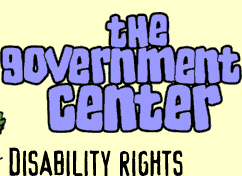 
|
||
Knowing Section 504 and ADAOkay, what about when you are out of school? That’s where the Rehabilitation Act – Section 504 and the Americans with Disabilities Act (ADA) come into play. The ADA basically says that people with disabilities have a right to privacy. This means that you don't have to answer questions if you don't want to, whether it is a job interview, membership in a certain program, or a service provided in the community. However, because the ADA and other civil rights laws say that employers must include people with disabilities in activities and provide them with "reasonable accommodations" (ways for someone to provide some support to you so that you can be part of a program or do a certain job), it's sometimes Okay for people to ask about things you do and what kind of support you may need. With Section 504 and ADA, you have the right to have:
Listen up, though! The law is not clean, clear, and neat. Sometimes people may not give you a specific accommodation you've requested. You will need to prove that you need it and you still may have to file a complaint or call the Office of Civil Rights if you do not receive an accommodation that meets your needs. That can be scary. Lots of teens don't want to talk about their disability or make a big deal about it. But if you really need some accommodations to graduate, go to college, have a job, keep a job, get into the building, or go to the movies with friends, you will need to learn about your disability. You also need to learn how to talk with people assertively and to share information about your rights in a respectful way. Try a Youthhood activity:Browse a Web site:
|
||
What Can I Do Here? | Help FAQs | Curriculum Guide
Privacy | Disclaimer | About | Contact Us | Homepage
Last updated on December 5, 2018
 |
 |
 |
©2006 Regents of the University of Minnesota
The University of Minnesota is an equal opportunity educator and employer. Online Privacy













